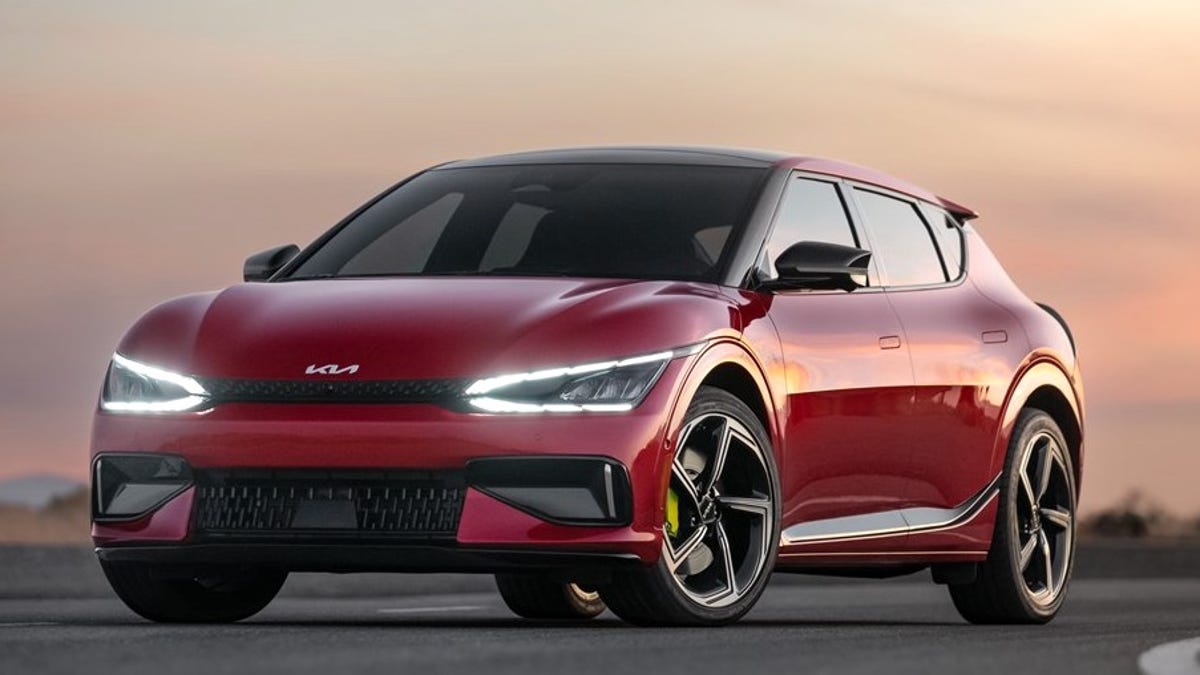 Why You Can Trust CNET
Why You Can Trust CNET This Loophole Lets Almost Any Electric Vehicle Qualify for the $7,500 Tax Credit
Interest in leasing EVs has surged since new guidance on the tax break took effect in April.

If you buy a Kia EV6, you can't claim the EV tax credit. But leasing offers a lucrative loophole.
The number of electric vehicles that qualify for the EV tax credit dropped dramatically in April, when new requirements for battery and mineral sourcing went into effect.
Right now only about a dozen cars, mostly from US carmakers, fit the bill.
But almost any make or model EV is eligible for the full $7,500 tax break if you lease, rather than buy it outright.
How does the leasing loophole work?
Currently, $3,750 of the "clean vehicle credit" is dependent on at least half of the battery components being manufactured in North America. You can claim the other $3,750 if at least 40% of its critical minerals are sourced from the US or a trade partner.
But the Inflation Reduction Act of 2022, which established the new guidance, categorizes leased automobiles as commercial vehicles, which aren't subject to the same sourcing requirements.
Technically, it's not the consumer who gets the tax break, but the dealership that leases the car.
"Because the car is still owned by the lessor, they're the one who can claim the credit," said Brian Moody, executive editor for Kelley Blue Book.
But EV manufacturers, especially foreign ones locked out of the tax credit, are passing the savings along in the form of better leasing terms. Hyundai's $499-a-month leasing deal for the Ioniq 5 includes a "$7,500 Total EV Lease Reward," while Kia is offering a $7,500 "bonus" on the 2023 EV6 through July 5.
As a result, Kia said it expects leasing to increase to 30%-40% of its EV business by next month, up from 10%-15% now.
The percentage of Hyundai Ioniq 5 vehicles that are leased shot up to more than 30% in April, CNBC reported, up from about 2% in January
What should I know if I want to lease an EV
While many leading EV manufacturers are offering leasing bonuses, Moody said they're under no obligation to do so. (Tesla, the largest seller of EVs in the US, doesn't offer a discount, Electrek reported.)
"If you're leasing an EV because you want a lower payment, be sure to ask about it up front," Moody said.
In addition, the IRS says it is still finalizing the form to claim the commercial clean vehicle credit, and it could issue additional guidance that closes or shrinks the loophole.
Are there other benefits to leasing?
By leasing their EVs, drivers can get the credit applied directly to their monthly payments rather than waiting for their IRS refund. (Buyers won't be able to use those funds as "cash on the hood" until 2024.)
Leasing also allows you to ignore the price and income limitations placed on purchased EVs.
In March, 34% of American EV drivers leased their vehicles, compared with less than 20% of new gasoline-powered cars. (A year prior, only 18% of EVs were leased.)
Ford Motor Credit CEO Marion Harris told Bloomberg that leasing could soon account for 60% of the EV market, at least while the list of qualifying vehicles is limited and concerns about technology remain.
"Leasing could be a safe way to test the waters for getting an EV," Moody said.
What about the tax credit for used EVs?
The Inflation Reduction Act also instituted a tax break for used electric and fuel-cell vehicles that is worth $4,000 or 30% of the sale price, whichever is less.
And unlike new EVs, second-hand cars don't have to meet any manufacturing requirements. The MSRP must be $25,000 or less, however, and the car must be at least two years old.
In addition, the used clean vehicle credit can only be claimed once in a vehicle's lifetime. And there are income caps if you want to claim the used clean vehicle credit.
Read On: How to Claim the $7,500 Electric Vehicle Tax Credit

